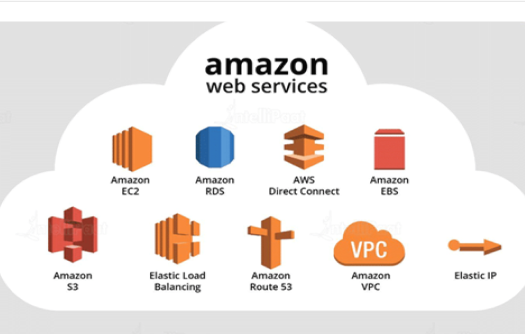Why Thought leadership?
Thought leadership refers to a type of content marketing strategy that aims to establish an individual or organization as an authority or expert in a particular industry or field. It involves creating and sharing high-quality, insightful, and innovative content such as articles, blog posts, whitepapers, webinars, and videos that offer unique perspectives and solutions to industry problems and challenges.
The goal of thought leadership is to create a reputation for expertise and to position oneself or one’s organization as a go-to resource for information and advice. Thought leaders often have a strong following of loyal supporters, and their opinions and insights are highly valued in their respective industries.
Thought leadership is important because it can help individuals and organizations build trust with their target audience, attract new customers or clients, and differentiate themselves from competitors. It requires a deep understanding of the industry or field, as well as the ability to communicate complex ideas in a clear and compelling manner.
Why is Thought Leadership required?
Thought leadership is required for several reasons:
- Establishing expertise and credibility: Thought leadership content helps individuals and organizations to demonstrate their expertise and knowledge in a specific industry or field. It is a way to showcase their skills, insights, and innovative ideas to establish credibility among their target audience.
- Building trust and relationships: Thought leadership can help build trust with customers or clients by offering valuable insights and solutions to industry problems. It can also establish a relationship based on mutual respect, understanding, and trust, which can lead to long-term partnerships and collaborations.
- Differentiating from competitors: In a crowded market, thought leadership can help differentiate an individual or organization from competitors. It is a way to stand out by offering unique perspectives, insights, and solutions that competitors may not be offering.
- Driving business growth: Thought leadership can also lead to business growth by attracting new customers or clients, increasing sales, and generating positive brand awareness.

Advantages and Disadvantages of thought leadership?
Advantages of thought leadership:
- Establishing expertise and credibility: By offering valuable insights and innovative ideas, thought leadership helps individuals and organizations establish themselves as experts in their field, which can lead to increased credibility and respect within their industry.
- Building trust and relationships: Thought leadership content can help build trust with customers or clients by offering solutions to industry problems and demonstrating a deep understanding of their needs and concerns.
- Differentiating from competitors: In a crowded market, thought leadership can help an individual or organization stand out by offering unique perspectives and solutions that competitors may not be offering.
- Attracting new customers or clients: Thought leadership can attract new customers or clients by generating positive brand awareness and showcasing the individual or organization’s expertise and value.
Disadvantages of thought leadership:
- Time-consuming: Developing high-quality thought leadership content requires a significant investment of time and resources, which can be a challenge for individuals or organizations with limited resources.
- Risk of oversaturation: As more individuals and organizations focus on thought leadership, it can be challenging to stand out and differentiate oneself from competitors.
- Risk of appearing self-promotional: If thought leadership content is too focused on promoting the individual or organization rather than offering valuable insights, it can come across as self-serving and may not resonate with the target audience.
- Difficulty measuring ROI: It can be challenging to measure the return on investment of thought leadership efforts, as the impact may not be immediately apparent and can be difficult to quantify.
Who Are Thought Leaders?
Thought leaders are individuals or organizations that are recognized as experts and innovators in their respective fields. They are known for their expertise, knowledge, and unique perspectives, and are often sought out for their insights and advice.
Thought leaders can come from a variety of industries and professions, such as business, technology, science, education, politics, and more. They may be entrepreneurs, academics, researchers, journalists, analysts, or industry professionals.
Some common characteristics of thought leaders include:
- Deep expertise and knowledge in their field
- Innovative thinking and problem-solving skills
- Strong communication skills and the ability to articulate complex ideas in a clear and compelling way
- A track record of success and accomplishment in their field
- A strong following of loyal supporters and followers
- Ability to influence and shape the thinking of others within their industry or field.
How to Build a Powerful Thought Leadership Strategy
Building a powerful thought leadership strategy involves several key steps:
- Define your niche: Identify a specific area within your industry or field where you can offer unique insights and expertise. This will always help you to be the best amongst the competitors and lead it
- Create high-quality content: Develop a content strategy that focuses on creating high-quality content, such as blog posts, articles, whitepapers, videos, and webinars. Your content should offer valuable insights and solutions to industry problems, and showcase your unique perspective and expertise.
- Identify your target audience: Understand the needs and interests of your target audience, and develop content that resonates with them. This can help you build a loyal following and establish trust and credibility with your audience.
- Build your personal brand: Establish a strong personal brand by showcasing your expertise and sharing your insights and opinions through your content. This can help you build a following and attract new customers or clients.
- Leverage social media: Use social media platforms to share your content and engage with your audience. This can help you build a strong online presence and reach a wider audience.
- Collaborate with others: Look for opportunities to collaborate with other thought leaders and industry experts. This can help you expand your reach and establish yourself as part of a community of experts in your field.
- Measure your results: Track the success of your thought leadership strategy by measuring key metrics such as website traffic, engagement rates, and lead generation. This can help you refine your strategy and optimize your efforts over time.
Overall, building a powerful thought leadership strategy requires a combination of creating high-quality content, understanding your target audience, building your personal brand, leveraging social media, collaborating with others, and measuring your results. By following these steps, you can establish yourself as a thought leader in your industry or field and attract new customers or clients to your business.

How do we Identify Thought Leaders?
Identifying thought leaders can be a challenging task, but there are several strategies you can use to find individuals or organizations with a strong reputation for expertise and innovation in their field:
- Research industry publications: Look for individuals or organizations that are frequently mentioned or quoted in industry publications. This can be a good indication that they are respected and recognized as experts in their field.
- Monitor social media: Follow hash tags and discussions on social media related to your industry or field. Look for individuals or organizations that are active in these discussions and have a strong following.
- Attend industry events: Attend conferences, webinars, and other industry events to connect with individuals and organizations in your field. Look for speakers and panellists who are recognized as experts in their field.
- Conduct interviews: Reach out to individuals or organizations and request an interview to learn more about their perspectives and expertise. This can help you identify thought leaders and build relationships with them.
- Use search engines: Conduct online searches related to your industry or field to identify individuals or organizations that have a strong online presence and are recognized for their expertise.
Conclusion:
In conclusion, thought leadership is a powerful strategy for individuals and organizations looking to establish themselves as experts and innovators in their field. By developing a strong personal brand and creating high-quality content that offers valuable insights and solutions to industry problems, thought leaders can attract a loyal following and establish trust and credibility with their audience.
While there are advantages and disadvantages to thought leadership, the benefits of establishing oneself as a thought leader can be significant. Thought leaders can enjoy increased visibility and recognition within their industry or field, attract new customers or clients to their business, and influence and shape the thinking of others within their industry or field.
Identifying thought leaders can be challenging, but by using research, networking, and a deep understanding of your industry or field, you can find individuals and organizations that are respected and recognized for their unique insights and expertise.
Overall, thought leadership is an important strategy for anyone looking to stand out in a crowded market, build their personal brand, and make a meaningful impact within their industry or field.















































